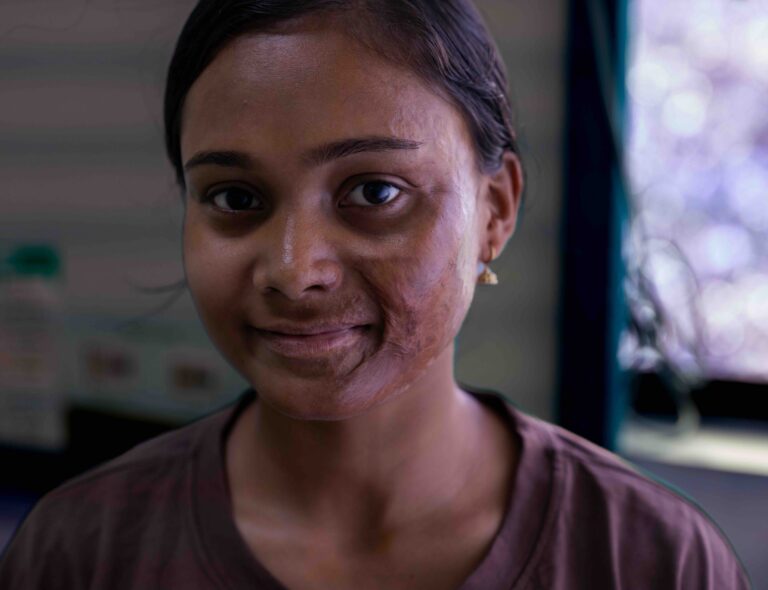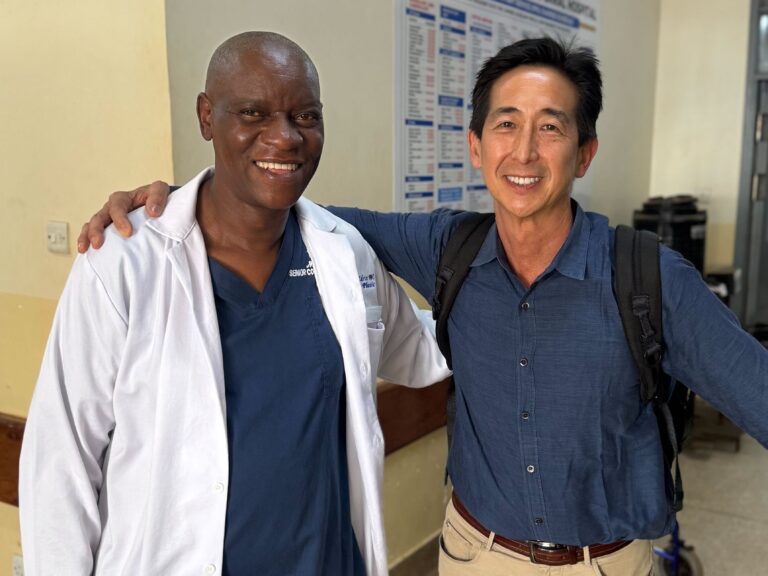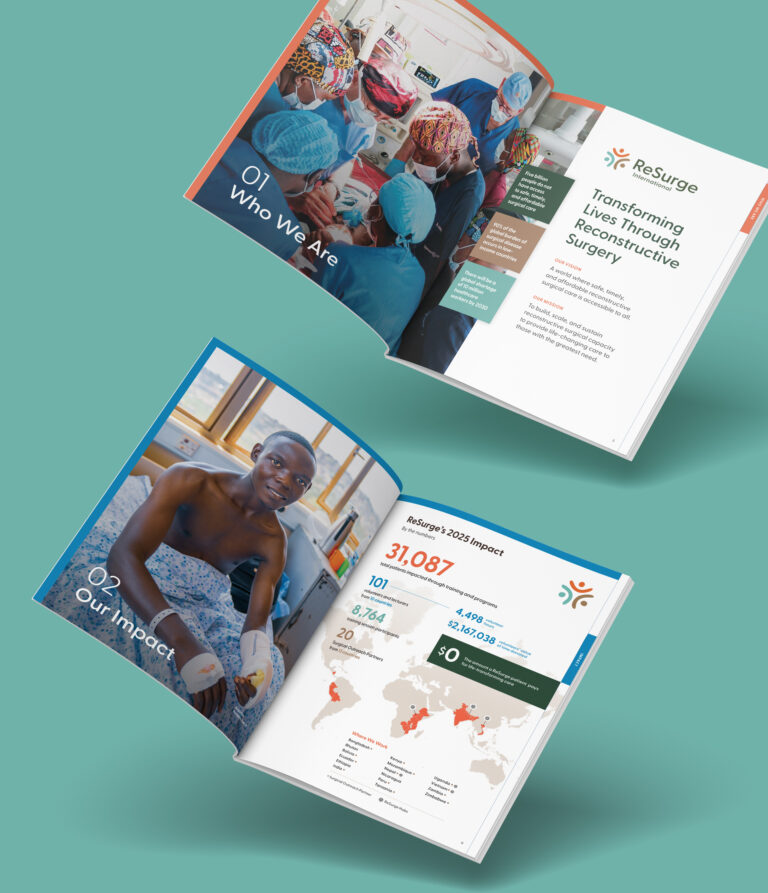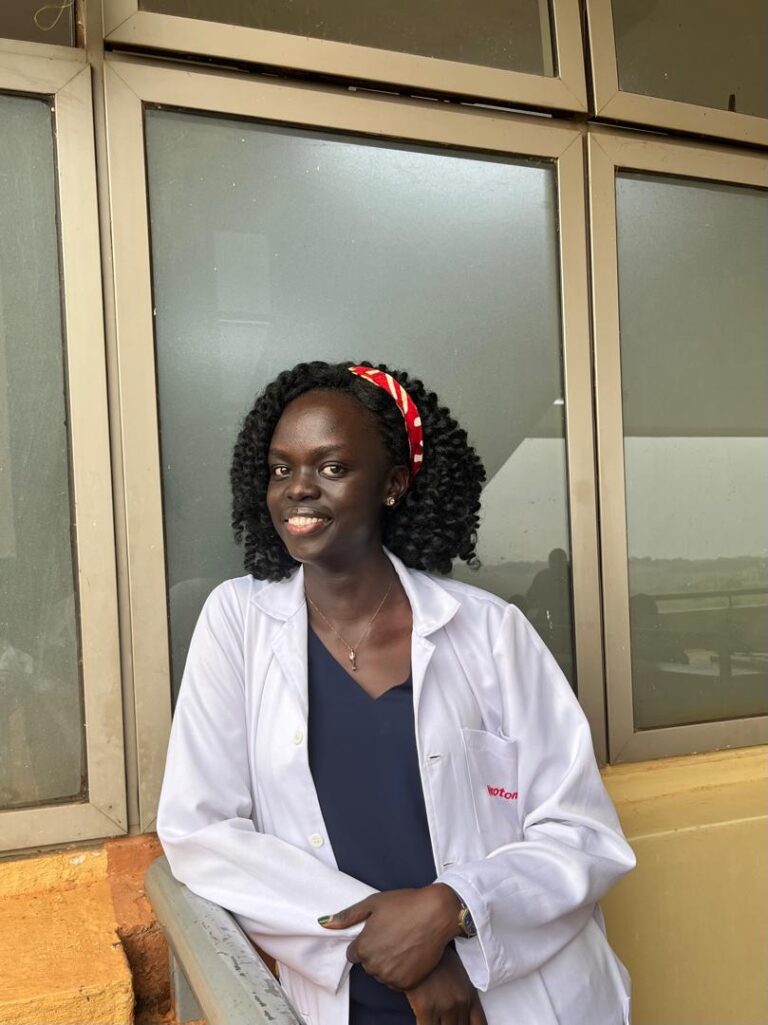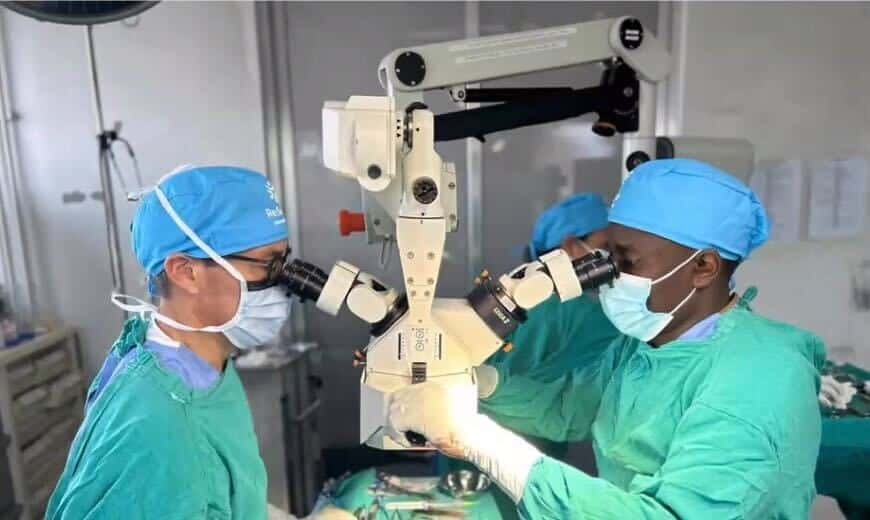
Originally from Zimbabwe, Dr. Owen Muzinda started as a ReSurge surgical trainee with a passion for microsurgery. ReSurge continued to support his training, and he has gone on to become a notable trainer, helping to pioneer microsurgery across Sub-Saharan Africa. You may recognize him from several surgical trips, courses, and highly complex surgical cases. ReSurge supported his training in reconstructive surgery on surgical exchange trips to Uganda. He then spent time in Nepal, India, and his home country of Zimbabwe at the CURE International Hospital honing his skills in microsurgery. Today, as a ReSurge Surgical Partner, he has been training others in microsurgery, further helping to develop a new generation of microsurgery pioneers. During her travels, ReSurge Laub Fellow Halley Darrach sat down to interview Dr. Muzinda.
Tell me a little bit about yourself and what brought you into medicine
My name is Dr. Owen Muzinda, and I am from Zimbabwe. I work at a government hospital called Sally Mugabe Central Hospital. So what brought me to medicine? I think it was a calling, because I love to be involved with people. I love to work with people and be in the [operative] theater. One of the qualities that I have is that I’m a patient person, which I think suits me well in plastic surgery because you need a lot of patience.

Were there any barriers or challenges you faced in your training?
Yes, of course. Training in plastic surgery in Zimbabwe is challenging, as you cannot learn everything in one [domestic] center, so it means you have to move from one place to another to obtain all your training.
I did my plastic surgery training with COSECSA, which is a college of surgeons in East, Central, and Southern Africa, comprising 14 countries. So the main training, I did most of my years in Zimbabwe, but as I said, I couldn’t learn everything in Zimbabwe. I had to move to other countries. For example, I spent my last year of training in Uganda. Though in between, I traveled to other countries like Tanzania, Kenya, and Zambia to get additional training. Even after completing training, there are still areas in which we were deficient in, so I am still traveling to obtain that training. There are some subspecialties we do not have a lot of currently in Zimbabwe, like microsurgery and hand surgery, which are areas where we are still lacking.
What has this training process looked like for you?
So far, my interest since I began my training has been microsurgery. I am mainly inspired by the fact that we have a lot of lower limb trauma in Zimbabwe that we didn’t have solutions to. Even if it’s something that’s not commonly managed yet in Zimbabwe, I think it’s something that we can bring to my country. So after my plastic surgery training, I came to Kirtipur Hospital in Kathmandu, Nepal, thanks to Resurge International’s sponsorship. Here I am receiving additional training in microsurgery.
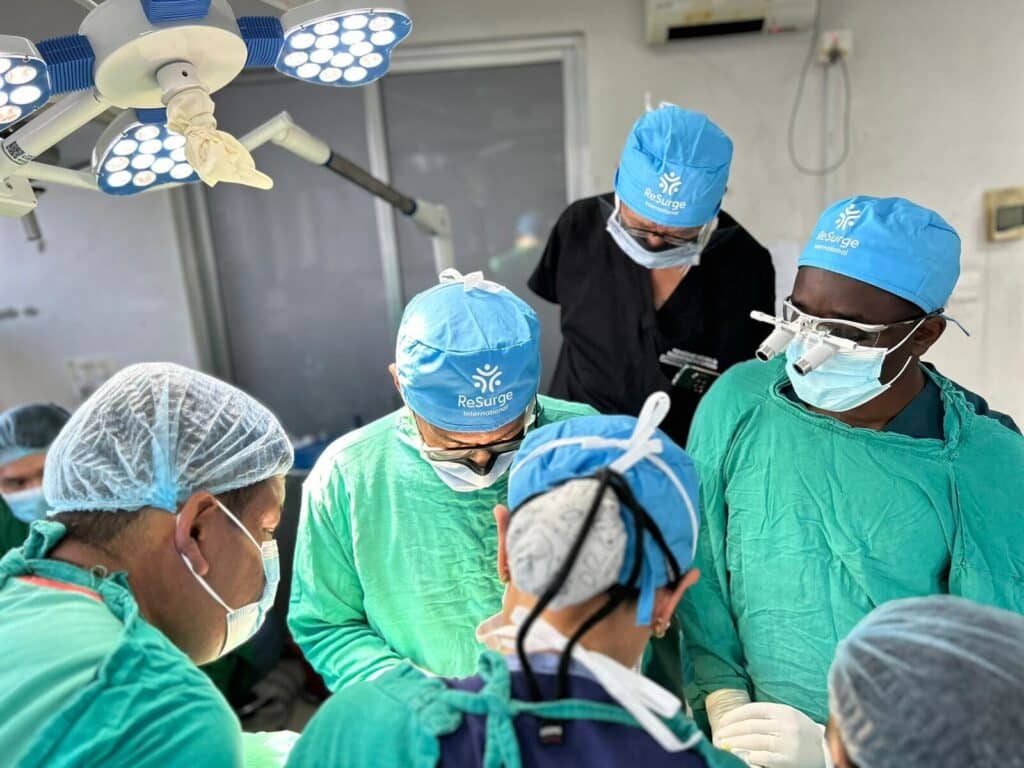
I started by doing some laboratory training on chicken legs under the microscope, and later I went to Ganga Hospital in India, where I spent a week doing simulations on live animals. It was very good practice because you could do anastomoses on the femoral artery and femoral vein, and then test your anastomosis immediately after.
What are your next steps?
There has been collaboration from ReSurge and CURE Hospital in Zimbabwe, where there is one microsurgeon who started working there last year, who will continue to mentor me in becoming a microsurgeon. In the long term, it is important for me to have mentors so that I can keep on learning. I think I have got the basics now, so when I get back home, I will continue to work on developing my skills.
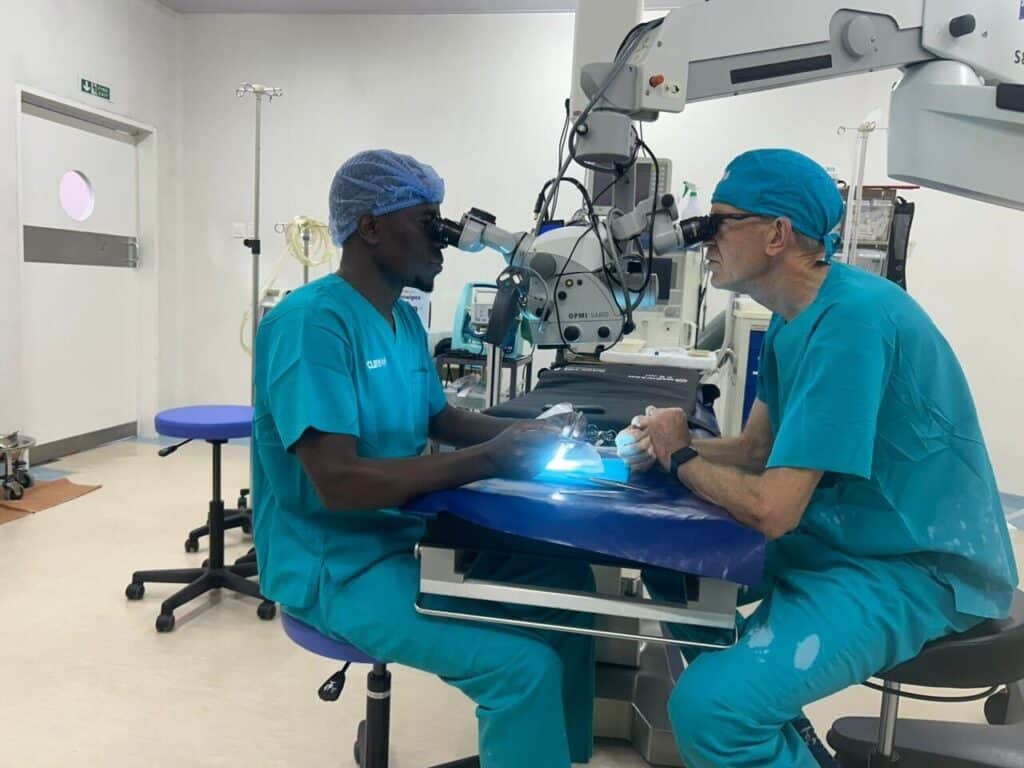
The goal is to start setting up a [surgical] microscope that I can work with in Zimbabwe. We have a microscope now, so I plan to start with simple procedures, so we can show people that we can do these surgeries [in Zimbabwe]. Then, the next step is to make sure future plastic surgery trainees get the exposure to microsurgery that I received, as I think this is a very important skill that all trainees should be exposed to.
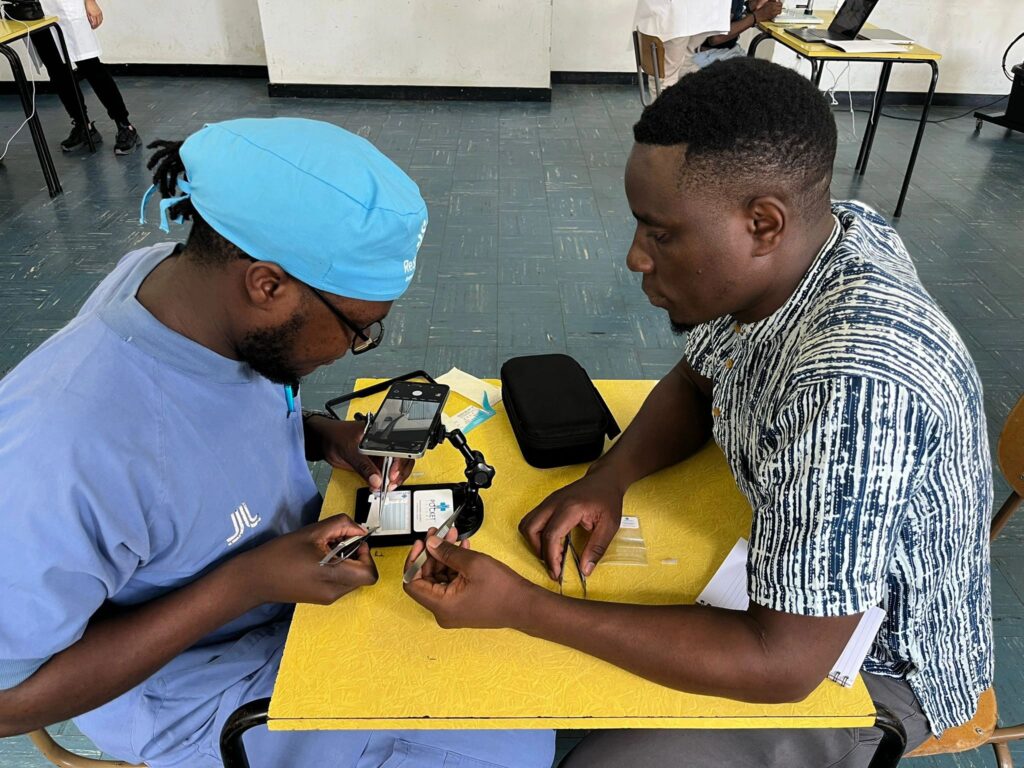
So in that regard, I will probably need to set up a small laboratory. The good part is that we have a simulation laboratory at a local university, so I hope to equip this centre for microsurgery practice using animal models. The COSECSA examinations will be in Zimbabwe this year, so once I return home, I need to prepare for that, as we plan to host a workshop before the exams for microsurgery training.

